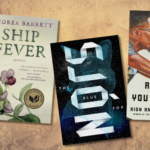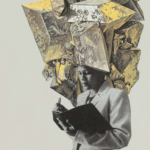
10 Books to Introduce Readers to Disability Literature
So far this Disability Pride Month, we talked about a book lover’s guide to Disability Pride Month, different things to keep in mind when reading disability literature, and various ways folks can be a good ally to disabled people on the internet. All of these things are important to keep in mind, but if you’re new to disability literature, you probably still have some questions.
If this is your first time observing Disability Pride Month, I understand that it can feel overwhelming. “Disabled” is really just an umbrella term that refers to a wide range of conditions, lived experiences, and communities. How do you know what terminology to use when? What is the difference between deaf and Deaf? What’s the difference between disability rights and disability justice?
While you might feel flooded with disability lit recommendations at the moment, here are a few books that I think will help you learn some key points about the disability community. While disabled people write in every genre, I’ve chosen mostly nonfiction books to give you a baseline from which to start. But rest assured, there are always more great books by disabled authors out there just waiting for you to read them.
Without further ado, let’s jump right in!
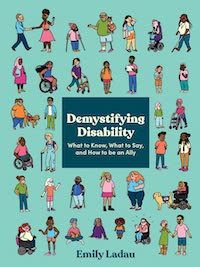
Demystifying Disability: What to Know, What to Say, and How to Be an Ally by Emily Ladau
When I’m trying to explain the basics of living with a disability, I recommend Demystifying Disability. Emily Ladau gives readers the basics of disability history, etiquette, and culture in around 150 pages. While she packs a lot into this slim volume, Ladau breaks down each topic and subtopic into easily digestible parts.
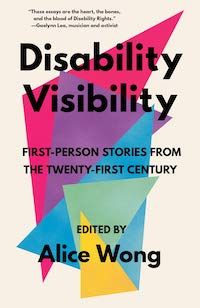
Disability Visibility: First-Person Stories from the Twenty-First Century edited by Alice Wong
The disability community includes a wide range of conditions and experiences, each with their history, culture, and lived experience. In Disability Visibility, Alice Wong gathers together a range disabled writers to share their experiences. As Wong mentions in her introduction, these essays don’t exist to educate disabled people. This collection centers and celebrates disabled people and our lives.
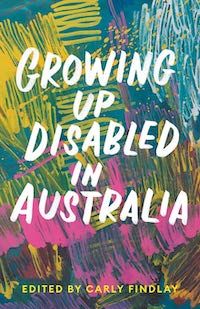
Growing Up Disabled in Australia edited by Carly Findlay
Disabled people around the world experience disability in different ways, especially when it comes to healthcare. In Growing Up Disabled in Australia, Carly Findlay brings together people experiencing disability in her own country. In Australia, disabled people are part of different social programs and support for disabled people. I love the wide range of writers included in Findlay’s collection and how these essays introduced me to so many new-to-me authors.
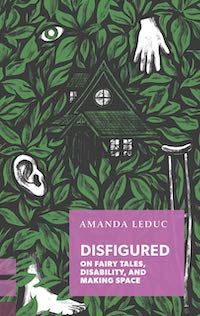
Disfigured: On Fairy Tales, Disability, and Making Space by Amanda Leduc
In the media, most people with disfigurements are portrayed as the bad guys. Just look at Disney’s Captain Hook from Peter Pan or Scar from The Lion King. In fairy tales, we constantly see disfigurement as a sign of evil. But why is that? Amanda Leduc answers that question and breaks down the role disfigurement has historically played in Western storytelling.
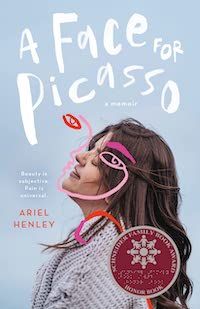
A Face for Picasso: Coming of Age with Crouzon Syndrome by Ariel Henley
Ariel Henley and her twin sister, Zan, were born with Crouzon Syndrome, a condition where the bones of their skulls fused as infants. To give their brains a chance to grow, Henley’s doctors performed dozens of operations to give her and her sister a chance at life. But walking through the world with a facial disfigurement as a child meant bearing the incredible ableism of the kids and teachers around her. The only people she saw on TV who like her and her sister, were monsters or villains. But societal stigma against facial difference deeply isn’t a fairy tale. It’s had a very real impact on Ariel’s life.

Ten Steps to Nanette: A Memoir Situation by Hannah Gadsby
Since the international success of her comedy special Nanette, Hannah Gadbsy has been lauded as one of the best comics of her generation. But to get to that “instant success,” Gadsby worked her entire life just trying to make sense of the world around her. Later in life, Gadsby was diagnosed with Autism. But until then, Gadsby just thought she must be deficient in some way, like everyone else was given a secret instruction manual she never received. But after her diagnosis, the world began to make sense for the first time.
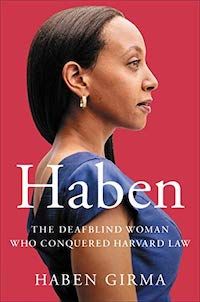
Haben: The Deafblind Woman Who Conquered Harvard Law by Haben Girma
Haben grew up as the daughter of immigrants determined that she should make her mark on the world. She describes her experience moving through the world as a Deafblind woman with nondisabled people constantly asking, “How are you going to go to college? How are you even going to find a job?” Haben not only graduated from Harvard Law School, she also invented technology to assist her in her work.
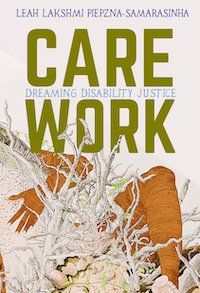
Care Work: Dreaming Disability Justice by Leah Lakshmi Piepzna-Samarasinha
In this excellent introduction to Disability Justice, Leah Lakshmi Piepzna-Samarasinha focuses on the intersectional position of queer femmes of color who have long been at the forefront of the disability rights movement. Piepzna-Samarasinha details the key tenets of disability justice and the importance of mutual aid. While these essays might be a little more dense if you’re just starting out, Care Work is a vital addition to your TBR.
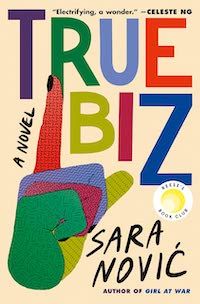
True Biz by Sara Nović
True Biz is a novel that focuses on a Deaf school, featuring characters that are from Deaf families, were born Deaf but never allowed to learn sign language, and CODAs (Child of Deaf Adult). These different characters work as examples of the complex makeup of Deaf communities and the challenges they face. It’s also an excellent story that I couldn’t put down!
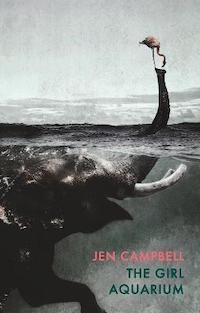
The Girl Aquarium by Jen Campbell
When I think about disabled poets and the incredible work they’re putting out there, Jen Campbell immediately comes to mind. She is a bisexual woman with Ectrodactyly Ectodermal Dysplasia Clefting Syndrome, and this collection explores themes around queerness, disability, and disfigurement. Her poems all have a dream-like feel, not a word out of place.
Looking for book recommendations? Check out “10 2SLGBTQ+ Disabled Authors to Read for Pride Month” and “9 Nonfiction Books About Disability by People of Marginalized Authors.”







